I was making a research on Nigeria cultural dance 💃 when I come across this piece by Franklin ugobude March 18 2016
IMAGE: JEREMY VARNER
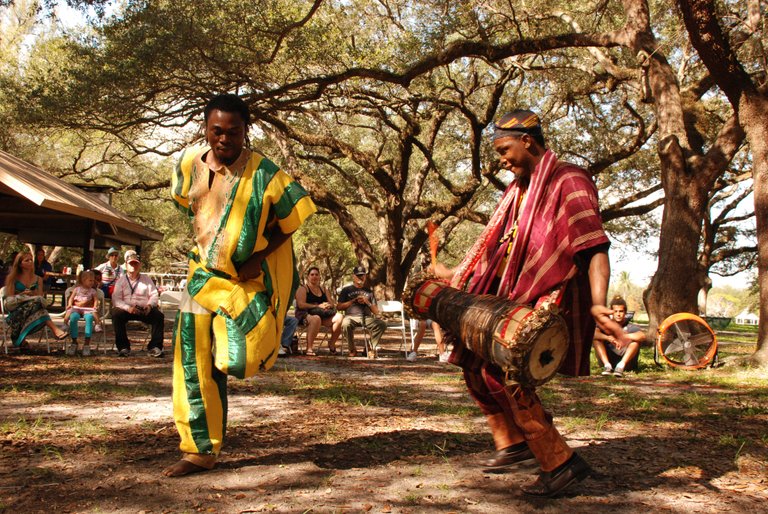
Nigeria is a country with a lot of tribes – each of them varying in culture and tradition.
The way the Igbos marry is far different from the Hausas and that’s fine. There are various aspects of cultural differences, most of them symbolically representing the same things but done in completely different contexts.
One major aspect of culture which Nigerians love a lot is dance. Nigerian cultural dances have a way of unifying the people in one way or the other and sometimes telling stories via accompanying music. These stories may differ from tribe to tribe and most often reflect on victory, beauty, honesty, love, war and the likes. We take a journey to a few tribes in Nigeria where we picked out a few popular cultural dances and a little history about these dances.
The Ukwata Dance
The Ukwata Dance is one of the dances of the Abbi people of Delta State have during the Ukwata Festival. It comes with religious aspects that include dances and rituals to worship the gods. Throughout the festival, women make bonfires to keep evil spirits at bay. Toward the end of the festival, the Egwu, Igba and Ukele dancers dress in marine colors and wear costumes representing aquatic creatures like crocodiles, alligators, fish and iguanas. The dance patterns they form represent the origin of these aquatic creatures while suggesting the dance of mermaids.
Image: HowNGIMAGE: HOWNG
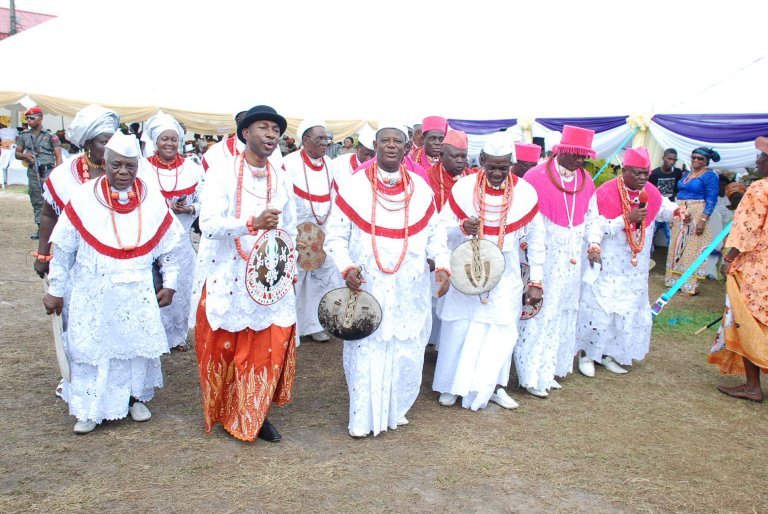
The Adamma Masquerade dance
This dance has a major character — the Adamma masquerade who is dressed in female attire but wriggles her body like that of a man. While the masquerade itself is feminine, most of the dancers are males. It is also noted that while the majority of the masquerades in Igbo land represent spirits, Adamma is believed to have none as the maiden spirit has no spiritual value like most masquerades.
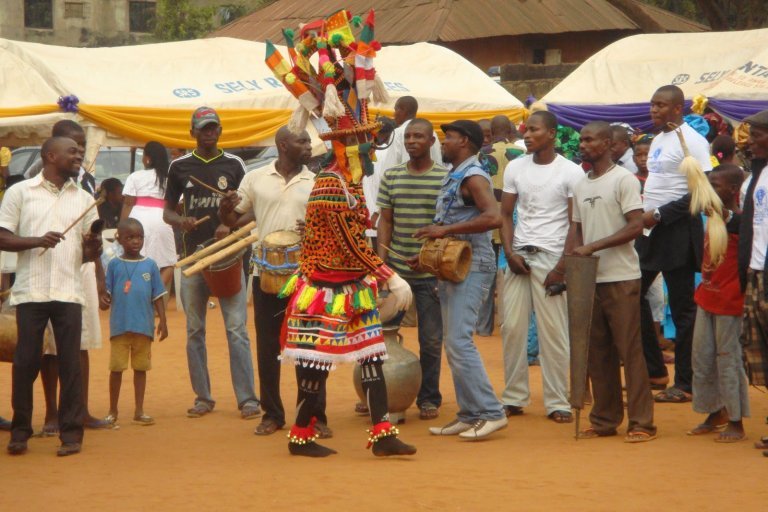
Image: Nnewi InfoIMAGE: NNEWI INFO
The Ekombi Dance
Ekombi is a traditional dance amongst the Efik people in Calabar, Cross River State – Nigeria. The movements are derived from the motions of the ocean. It is a graceful dance with incredible footwork, it’s a dance of peace and happiness. Ekombi shows a woman’s beauty and femininity.
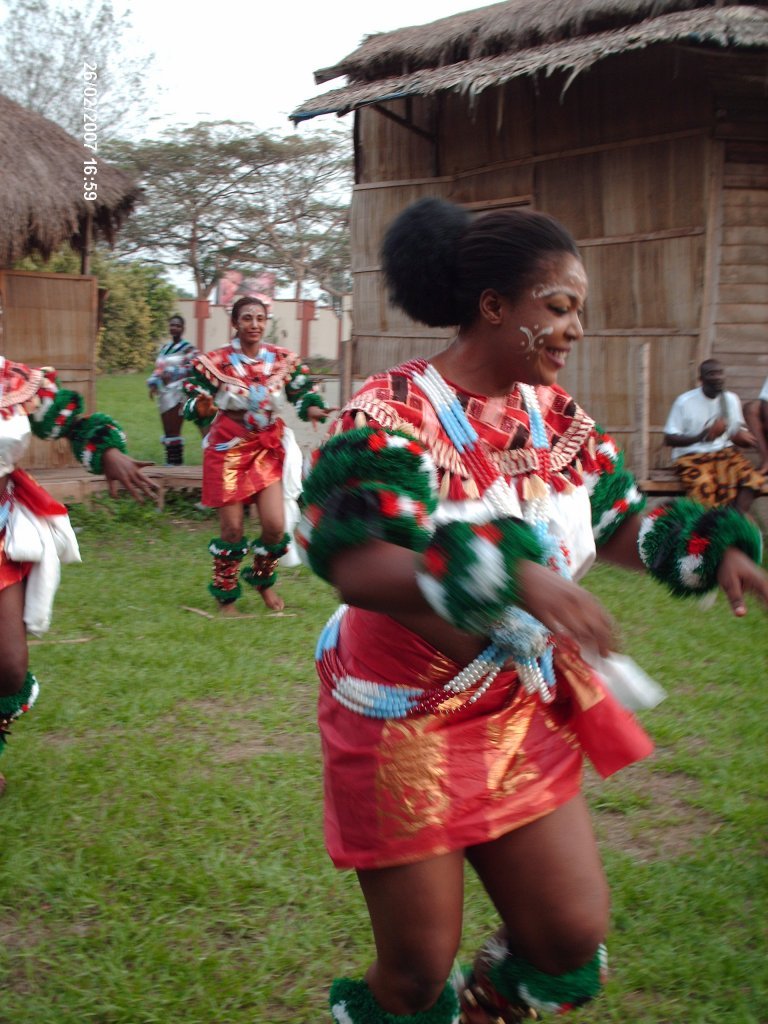 Image: Global Peace ProductionIMAGE: GLOBAL PEACE PRODUCTION
Image: Global Peace ProductionIMAGE: GLOBAL PEACE PRODUCTION
The Bata Dance
The Bata dance is prominent in the western region of Nigeria, home to the Yoruba tribe. It is associated with Sango, God of Thunder is believed to be athletic and overtly acrobatic. The dance emerged out of the need to soothe a king with a fiery and tempestuous nature. The dance is not fully achieved without the music from the bata drums, ilu bata.

Image: Jeremy VarnerIMAGE: JEREMY VARNER
The Koroso Dance
The dance, which from inception, hinged on a particular pattern of steps and body movement, has evolved over time. The dance is a combination of movement from various traditional dances of the Fulani and Hausa people of Kano State, with the name derived from the rattle tied around the dancers’ legs.
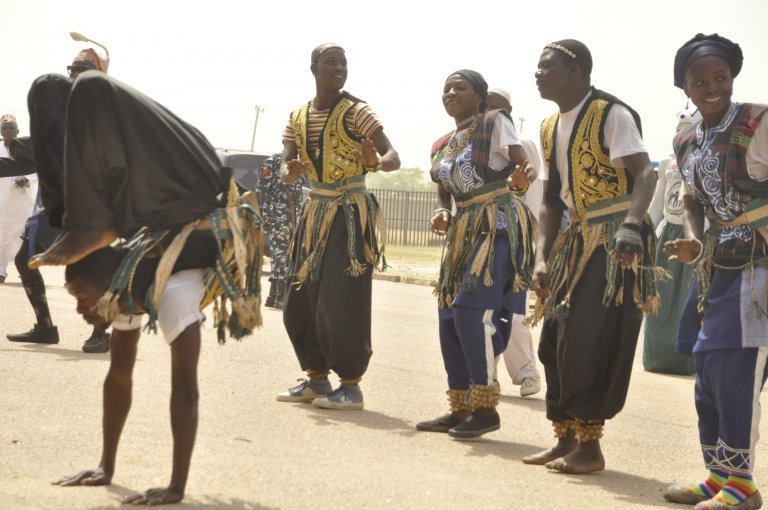
Image: KannywoodIMAGE: KANNYWOOD
The Nkwa umu-Agbogho Dance
This is also known as the “Maiden dance” and is synonymous with young maidens of marriageable age. It also helps the younger girls to keep their minds occupied and to abstain from sexual activities before marriage. The dance is a sight to behold and involves rhythmic movement from the chest and waist. It is also a seductive dance as they flirtatiously flaunt their bodies in seductive manners to attract suitors.
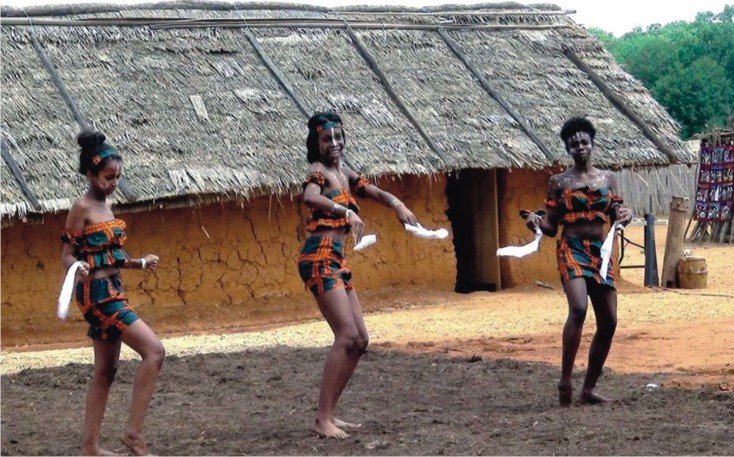
Image: Imo OnlineIMAGE: IMO ONLINE
Ohogho Dance
The Ohogho dance comes from the Benin culture and belongs to certain strong and healthy age groups. It is a religious dancer that has its dancers wearing the waist gown – ebuluku and dance in circles with gongs or bells in their hands and around a bowl with burning medicinal leaves. It wards off evils and forms a part of major religious ceremonies.
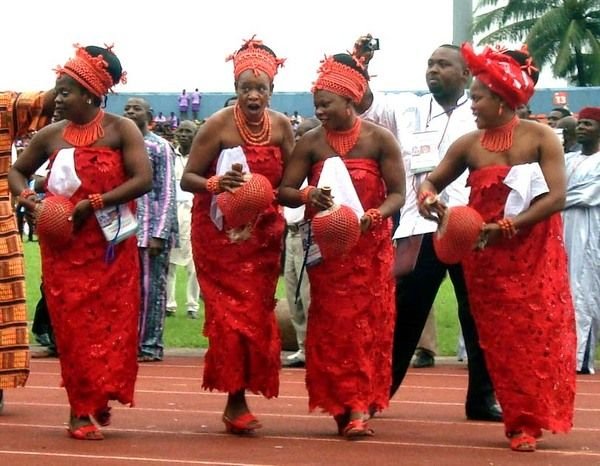
Image: Nigeria BulletinIMAGE: NIGERIA BULLETIN
Gese Dance
Gese is a religious dance that originated from the Yorubaland of western Nigeria and gets its name from a type of drum. Its famous sources come specifically from the towns of Okeigbo and Ifetedo in the southwest region of Nigeria. It is grounded in complex drum rhythms that only trained dancers can expertly perform in a way that truly represents the religious customs of the people. The movements represent a holistic view of life that is enshrined in the people’s religious practices. Gese dancing is also used to praise various Yoruba gods; each deity has its own drum beat that dancers move to as they honor their god.
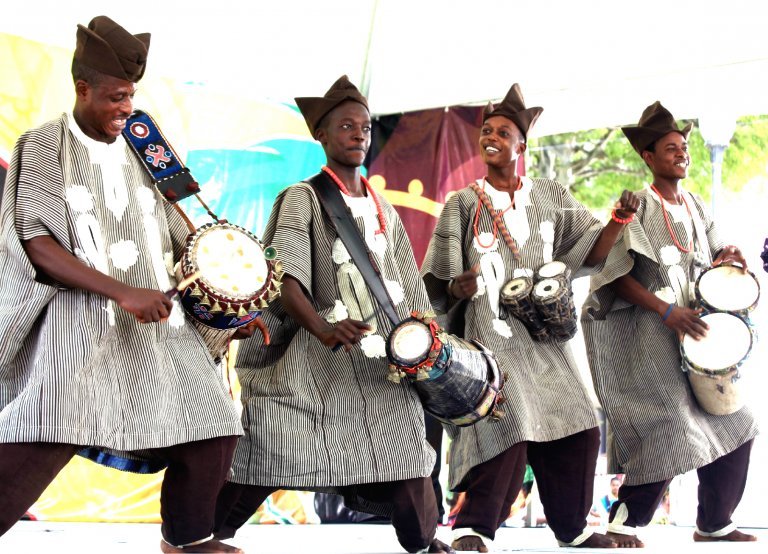
Image: WikipediaIMAGE: WIKIPEDIA
The Ikpirikpi-ogu (War Dance)
This dance is synonymous with warriors and is usually performed to welcome soldiers back from tribal wars. In those days in the Igbo land, as akin to other traditional settings and societies, communities usually engage in wars and conflicts with other neighboring communities. Thus, to welcome the warriors who went to defend the community, this dance is enacted — as a sign of solidarity, and to give the warriors a sense of belonging and fulfillment after carrying out the duty of defending the community. Today it’s purely symbolically done to show the prowess and valor of a community and its triumph over collective challenges.
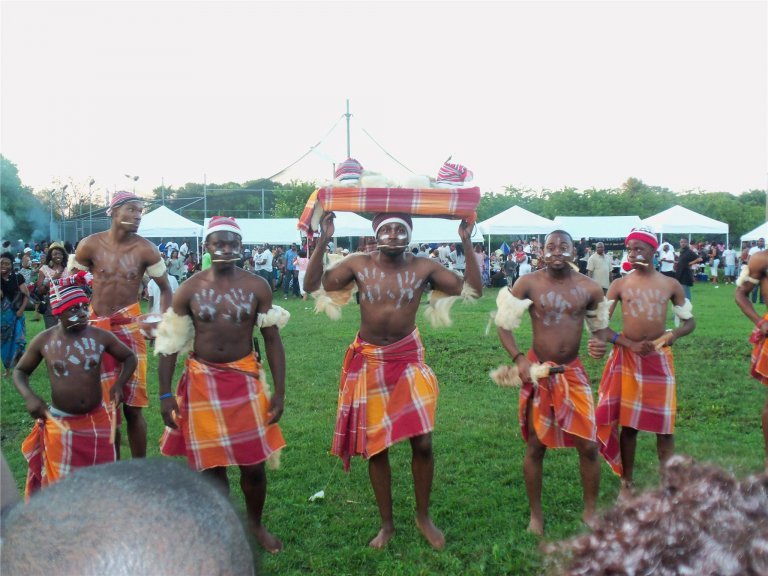
Image: Umu Igbo Alliance IMAGE: UMU IGBO ALLIANCE
The Swange Dance
The Swange is a form of urban recreational dance among the Tiv in which men and women dance together. This dance uses the circle formation familiar in village dances and adapts traditional musical themes to highlife rhythms played on a combination of Tiv and Hausa instruments. The climax of the evening is provided by a solo dancer who improvises freely, using movements from many styles.
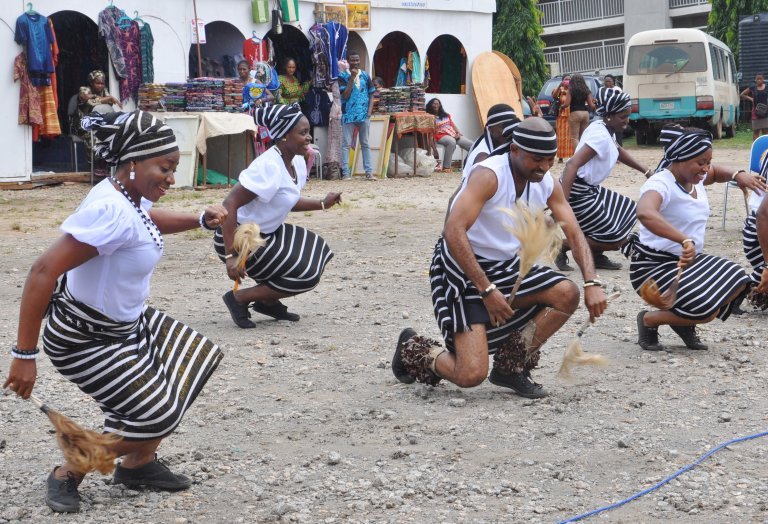
Image: Scan News Nigeria...
Am from a tribe in Nigeria where dance is rich and common, we develop dances of any type every seconds from different areas... YORUBA TRIBE. Allow me to share a cultural dance video on easter Good Friday.. https://m.youtube.com/watch?v=xEzOYUhLtZo
Hi! I am a robot. I just upvoted you! I found similar content that readers might be interested in:
https://omgvoice.com/lifestyle/nigerian-traditional-dances